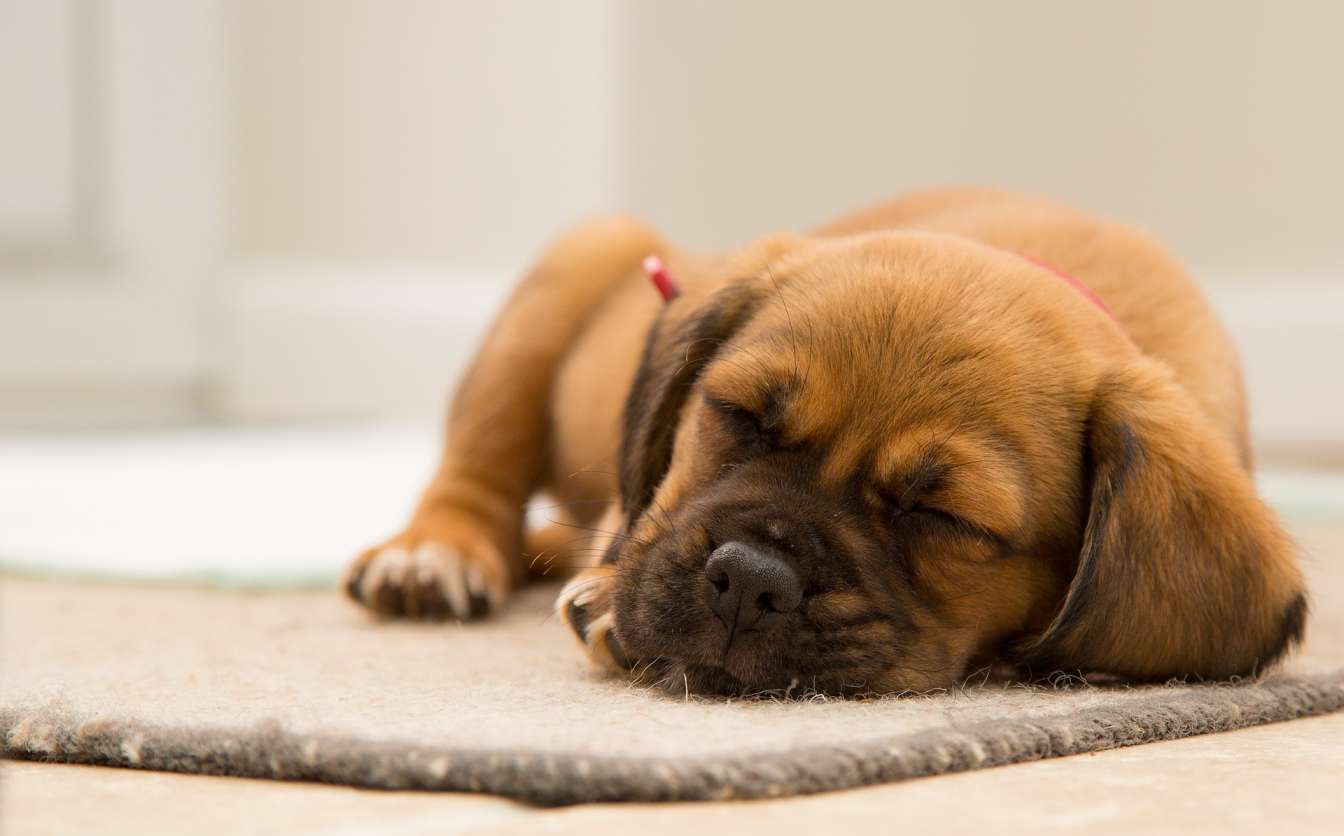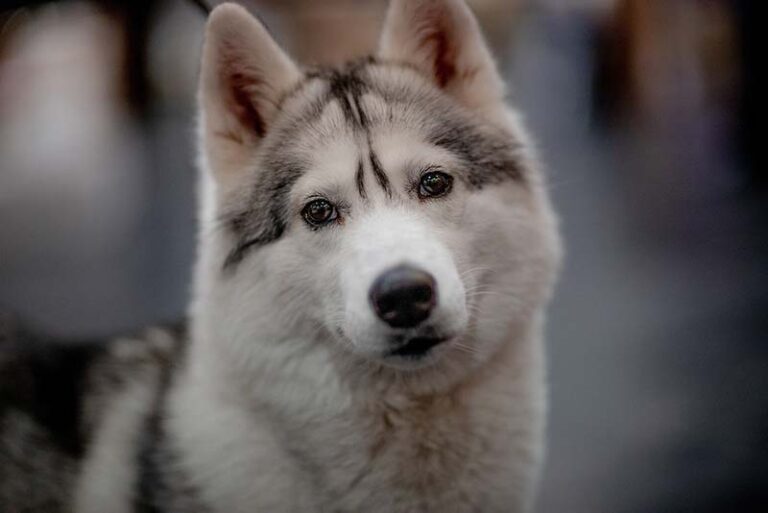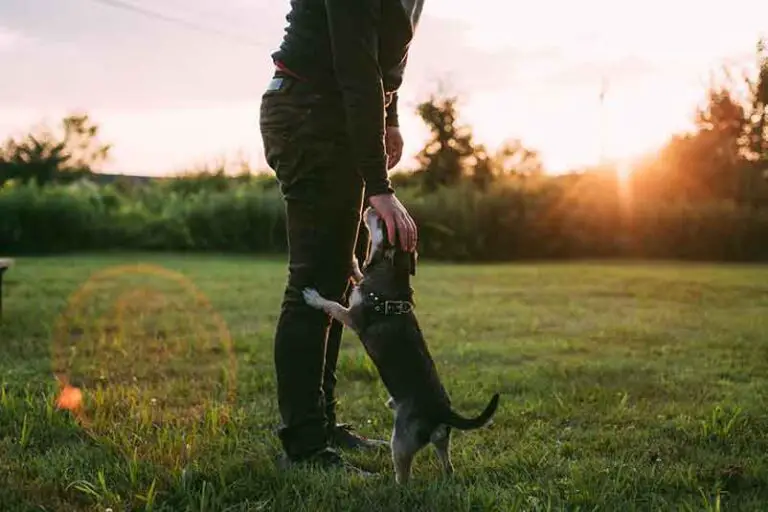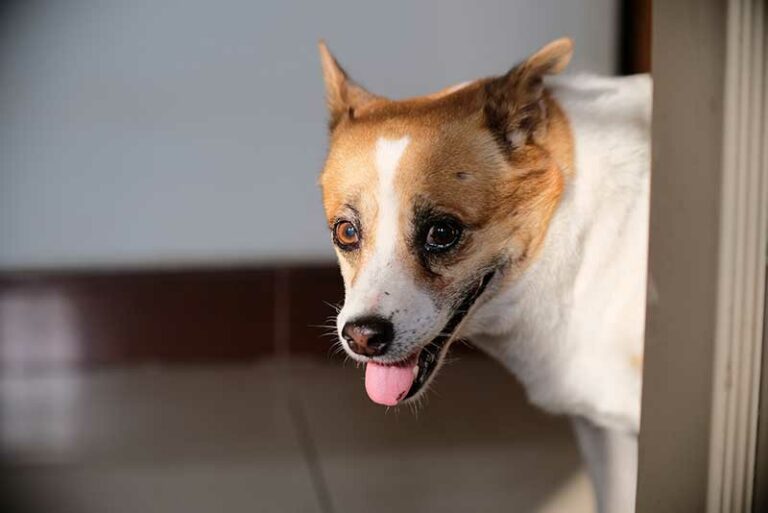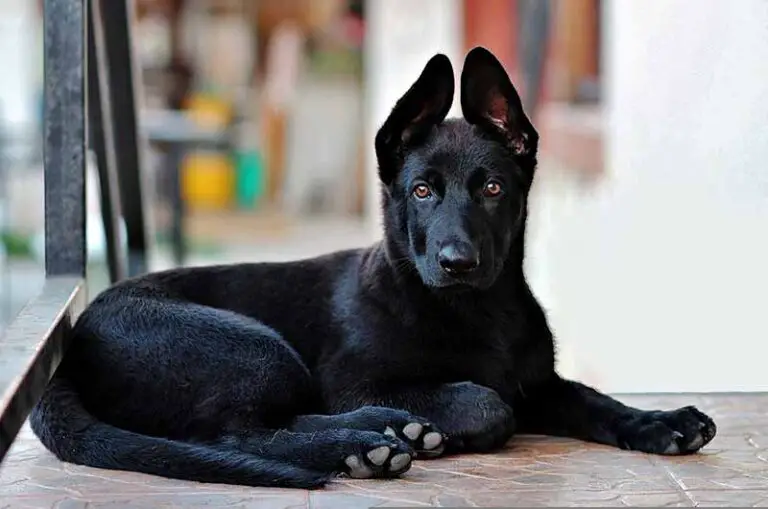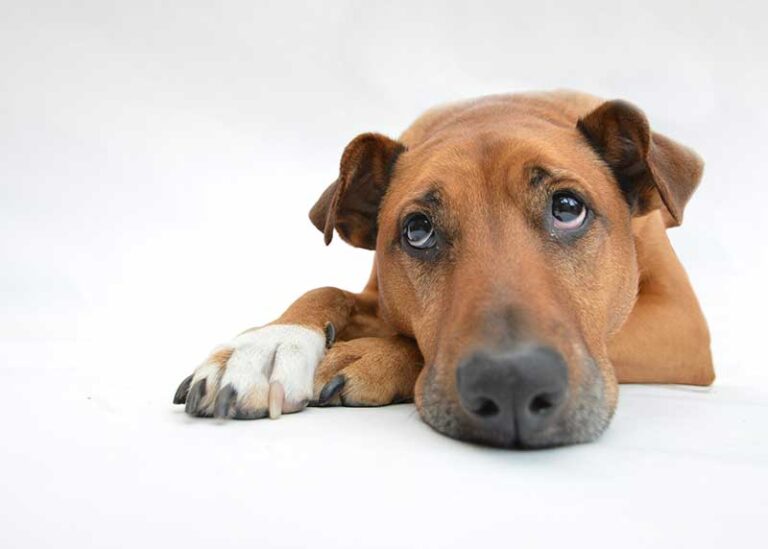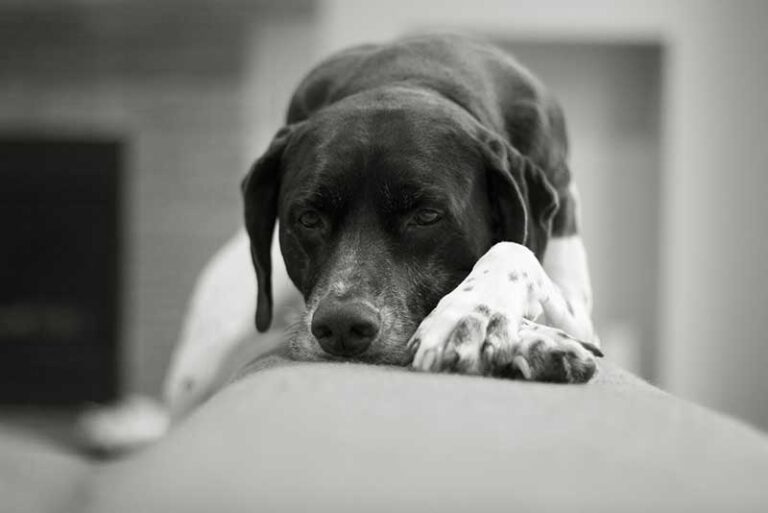Why Is Your Dog Breathing Fast While Sleeping? Reasons
Ever wondered why your furry friend is huffing and puffing during naptime? In this article, we’ll explore the reasons behind your dog’s fast breathing while sleeping. From dreams of chasing squirrels to potential health indicators, let’s unravel the mysteries behind Dog Breathing Fast While Sleeping. Stay tuned for some paw-some insights!
Are you a first-time dog owner? If so, you will come across several issues raising your pet. Having a pet dog is fun and exciting, yet it can also be challenging. Everyone starts their dog parenting journey as amateurs; therefore, it is common for first-time dog owners to get worried about the slightest change they notice in their pet.
Even though you are new to dog parenting, there are plenty of ways to educate yourself on certain concerns. This article discusses one such situation that dog owners often come across. Why do dogs breathe fast while sleeping? Let’s find out.
You might have noticed that your pet dog breathes rapidly during its sleep. Why is your dog breathing fast while sleeping? Is it a normal condition, or should you worry about it? Dogs breathe fast while sleeping due to several reasons. Sometimes fast breathing results from perfectly normal causes, for instance, Rapid Eye Movement or the REM stage of the dog’s sleep.
However, fast breathing during sleep could also be caused by other factors, for instance, extreme weather conditions, lungs-related issues such as stiffening of airways, compressed lungs, fluids in lungs, kennel cough, collapsing trachea and other medical problems including anaemia, and heart failure.
It is also essential to know that puppies’ breathing patterns differ from adult dogs. So, if a puppy breathes faster during sleep, there isn’t much to worry about. However, if this often happens in a grown-up dog, you must be extra careful and figure out why. The bottom line is that fast breathing in dogs while sleeping results from both normal and abnormal reasons.
It is good to keep a close eye on your pet dog. Still, you should not panic as soon as you see a change or something unusual in your pet’s behaviour. If you notice such a thing, you should first try to understand the reason behind it.
If you need to understand the reason, you must have prior knowledge. This article will help you to clearly understand the reasons for fast breathing in dogs during sleep. So, if your puppy or adult dog faces this condition, you will know what to do.
Why is my dog breathing fast while sleeping?
Fast breathing while sleeping could be a common and harmless condition among dogs. Nonetheless, you must pay attention to this condition, especially among adult dogs, because sometimes this occurs due to potential negative causes. For that reason, you should be aware of all possibilities.
Most of the time, dogs breathe fast while sleeping, which happens in specific stages of the sleeping cycle. All mammals, including dogs, undergo the REM stage during their sleep.
What is the REM stage, and what connection does it have with rapid breathing? REM (Rapid Eye Movement) stage has a high amount of brain activity, making dogs breathe faster to take excess amounts of oxygen and transform it into energy.
Simply put, this process makes your dog breathe faster while sleeping. As mentioned earlier, this breathing condition can be mainly observed among puppies rather than grown-up dogs because puppies have a more robust and active REM cycle.
However, grown-up dogs also experience the REM stage in their sleep, which is pretty low compared to puppies. If fast breathing is caused by the REM cycle, it is not something to stress about. However, this is not the only reason your dog breathes fast during sleep.
Sometimes, dogs tend to breathe fast while sleeping if they experience significant changes in the weather. To elaborate, dogs can tolerate a specific temperature limit; if they get exposed to extremely hot weather conditions, they will find it difficult to control their body temperature.
If the dog’s body temperature exceeds 106°F (41°F) primarily due to excessive environmental heat, it is known as experiencing heat strokes. When a dog faces a heat stroke, it will put extra effort into cooling down the body temperature, and fast breathing while sleeping is one of the signs you will notice.
Furthermore, various illnesses could also make dogs breathe faster than usual while they sleep. Speaking of such health issues, most complications are related to the respiratory system. For example, trachea collapse, kennel cough, pneumonia, and lung cancer could make the dog face breathing difficulties’ therefore, you will notice them breathing fast while sleeping.
Other than health issues, if the dog’s airways are blocked for different reasons, such as smoke inhalation, that will also cause fast breathing. Hernia, anaemia, and heart issues could also be a reason for rapid breathing. Also, this behaviour may result from less complex health conditions such as nausea.
Why is an older dog breathing fast while sleeping?
As said, there is a difference between a puppy breathing fast while they sleep and an older dog. Puppies naturally have a much more active REM cycle; hence, rapid breathing while sleeping is a prevalent condition for puppies.
What if your grown-up dog indicates this behaviour often? Older dogs also breathe fast due to the impact of the REM stage of sleep, yet it doesn’t happen very often. Suppose you notice this behaviour for a considerable period in an older dog; you must be vigilant.
Compared to puppies, older dogs are more vulnerable to health issues; most of the time, grown-up dogs breathe fast while sleeping because of respiratory distress.
If the rapid breathing is constant and you notice other symptoms such as excessive drooling, louder panting, repetitive coughing, pale or red gums, and changes in appetite, do not waste a minute to take your pet to a veterinarian.
My dog is breathing fast through the nose while sleeping; why?
Is it normal for dogs to breathe fast through their nose when sleeping? While this can be normal for some dogs, it might not be the same for others. So, at what point should you be concerned about this?
If you suspect something is wrong, you can perform a small experiment to understand whether your dog is breathing faster than it should. Typically, a healthy dog takes around 30 breaths per minute.
Set the alarm for a minute and count the number of breaths your dog takes. If it is around 30, you do not have to worry, but if it exceeds 35 breaths per minute, you should get professional help and figure out why.
Why is a pregnant dog breathing fast while sleeping?
If your dog is pregnant, you will likely see them breathing fast while sleeping; it is a natural way of responding to specific conditions of pregnancy. During pregnancy, dogs can be more vulnerable to changes in the external environment.
During warm summers, your pregnant dog will often indicate rapid breathing in their sleep to cool down its body temperature. Unlike humans, dogs do not have sweat glands to let go of heat from the body; therefore, dogs have substitute ways to do the same tasks, for instance, panting and heavy breathing.
Suppose the temperature is average, yet your pregnant dog breathes fast while sleeping; what could be the reason behind it? Pregnant dogs breathe more rapidly than usual when they get contractions and are close to labour.
If you notice signs such as lethargy, restlessness, vomiting, lower body temperature, and fast breathing, that signifies your dog is about to give birth.
My dog is breathing fast while sleeping after surgery; should I be worried?
It is essential to monitor your pet dog if it faces surgery. Surgeries may have side effects, and dogs respond to them differently. What if you notice your dog breathing fast while sleeping after surgery? Is it an ordinary sign, or should you be worried?
If your dog experiences this condition after surgery, it typically does not indicate something good. Depending on the type of surgery, the recovery process can be a lot for your pet dog to handle. Some dogs face anxiety and stress, which leads to heavy breathing.
Dogs also breathe fast to cope with the surgery’s physical discomfort and pain. Also, certain medications can be a reason why your dog breathes fast while sleeping after surgery.
Aftercare is a must for a dog who faced surgery; therefore, if you see them persistently breathing fast after the surgery, the best thing to do is to consult a veterinarian.
Final thoughts
This article brought you a comprehensive explanation of why dogs breathe fast while sleeping. This condition results for various reasons; while some are considered normal, others are not.
The REM stage of sleep naturally makes dogs breathe faster than usual, a condition common among puppies. Adult dogs also face this, but if a grown-up dog breathes fast during sleep for a consistent period, you should find out what causes it.
Because as said, sometimes heavy breathing results from medical conditions, even severe ones. Furthermore, dogs also breathe fast while they sleep if they are experiencing scorching temperatures and specific hormone changes that happen along with pregnancy.
So, if your dog breathes fast while sleeping, try to observe the external conditions, age, and general behaviour; it will help you better understand the situation. If you feel something is odd with your pet, it would be wise to get professional help.

